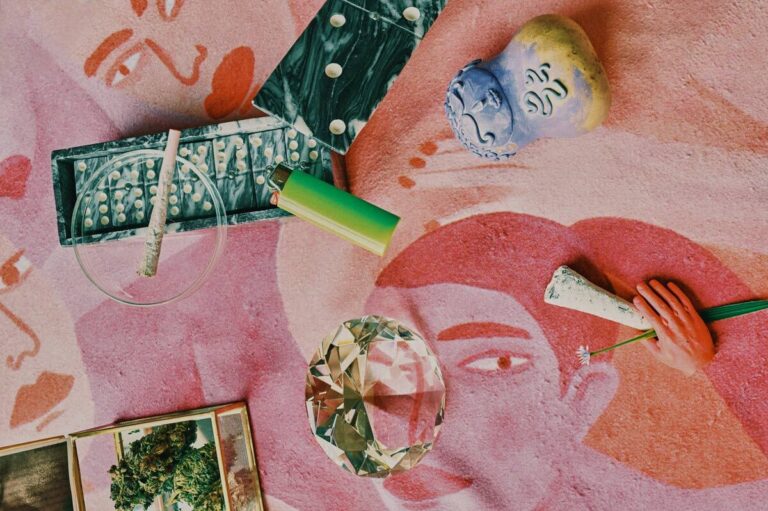You can now order weed on Uber Eats in Canada
Groceries, flowers, cosmetics, prescriptions and pet supplies: just when we thought the ride-hailing app Uber had evolved into a full-blown delivery empire, it has now dipped its toes into a booming market by adding weed to its menu. Partnering with Tokyo Smoke, an award-winning cannabis retailer, Uber is officially letting users in Ontario, Canada place their orders for vapes, edibles and more—right through the Uber Eats app.
According to a press release, Ontario-based users can either select the newly-added ‘cannabis’ section or search for ‘Tokyo Smoke’ on the app to start ordering. A warning screen will then pop up, where the customers will have to confirm their age to access the virtual storefront. After confirmation, they will be redirected to the menu of a local Tokyo Smoke store (out of 50 existing outlets) to select and place their orders—which Uber claims will be fulfilled within the hour.
However, there’s a catch. Customers will have to pick up their own orders from the store where a CannSell-certified employee will cross-check their identification proof as required by regulations. ‘What’s the point then?’ I hear you ask. According to Ontario’s cannabis curbside pick-up and delivery regulations, only cannabis retailers and their direct employees who hold a certification from CannSell may deliver cannabis to customers. And a third party (like Uber) may be used for transportation only if the product is in the secure possession of a certified employee at all times.
In short, Uber can’t deliver weed legally to your doorstep… yet. Instead, the ride-hailing giant is on a quest to streamline the process for ordering cannabis in Ontario at the moment. “We are partnering with industry leaders like Tokyo Smoke to offer safe, convenient options for people in Ontario to purchase legal cannabis,” said Lola Kassim, general manager of Uber Eats Canada, in the press release. “By combining a streamlined ordering process through the Uber Eats app with Tokyo Smoke’s in-person pickup service, we’re creating a new end-to-end experience for responsible cannabis ordering across the province.”
The aim of the partnership doesn’t end there. Ever since Canada legalised the recreational use of cannabis in 2018, the country is trying to fix its ailing pot market—where illegal producers are still controlling a large share of its annual sales. According to both the companies, the new venture will help crackdown on this underground market, which presently accounts for over 40 per cent of all non-medical cannabis sales in Canada.
“Further, recent research from Public First shows that driving after cannabis consumption remains prevalent, with 1 in 7 (14 per cent) of cannabis users admitting to having driven a vehicle within 2 hours of consumption,” the press release noted, adding how options like Uber Eats could help decrease impaired driving and improve safety on the road—if and when the laws evolve to include deliveries in the future.
While this is Uber’s first foray into the cannabis market, it seems to be a well-calculated one. Back in April 2021, CEO Dara Khosrowshahi told CNBC that the company will consider delivering cannabis as soon as the legal coast clears in the United States. However, touching base with Ontario makes sense for the company looking to test the waters—given how the market here has fairly matured over the three years of legalisation. Clusters of shops and dispensaries have also been popping up across the province, further cementing the demand for the product.
With the legal marijuana market expected to hit $70.6 billion by 2028, global delivery services undoubtedly look like the next horizon we’re headed to, in terms of weed on-demand. When asked about the possibility of further expansion, an Uber spokesperson told Quartz: “As we learn from this partnership in Ontario, we’ll continue to watch regulations and opportunities closely market-by-market. And as local and federal laws evolve, we will explore opportunities with merchants who operate in other regions.”





